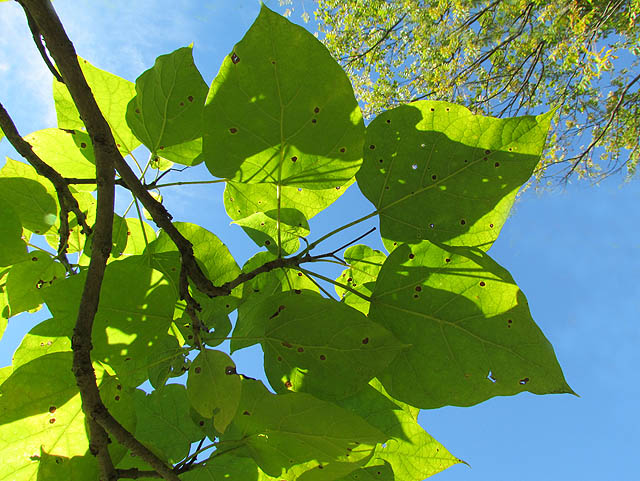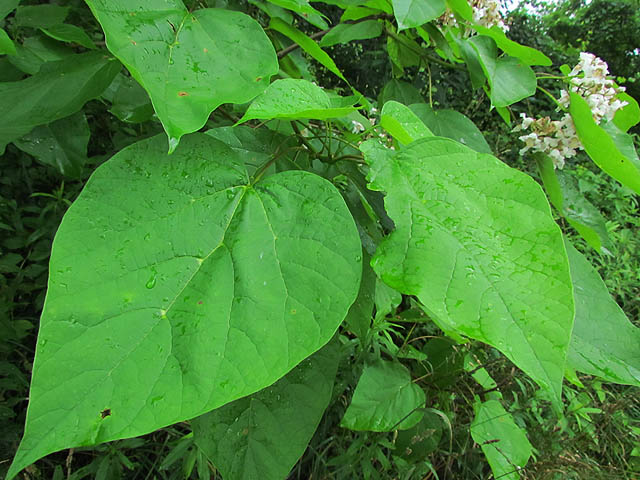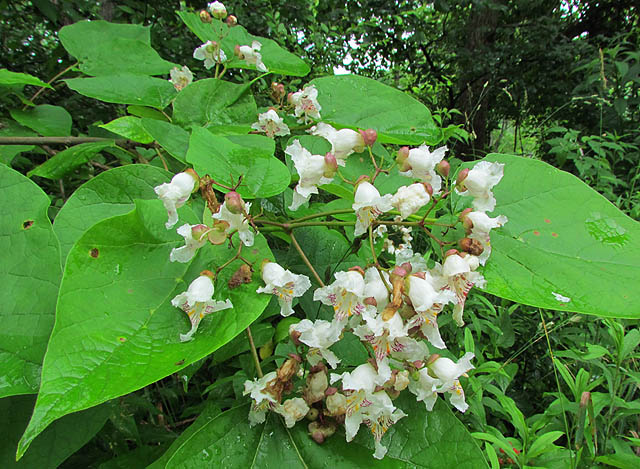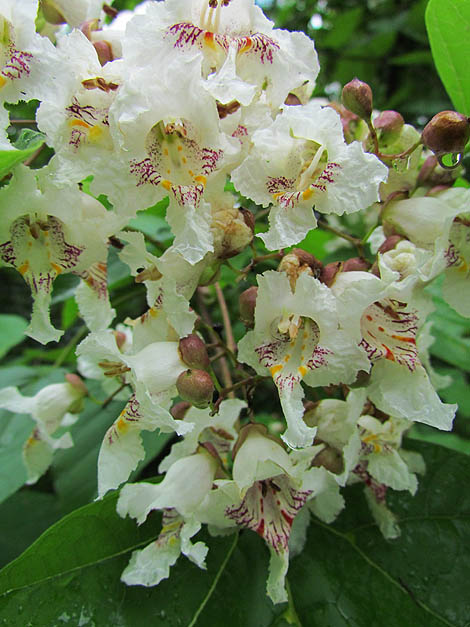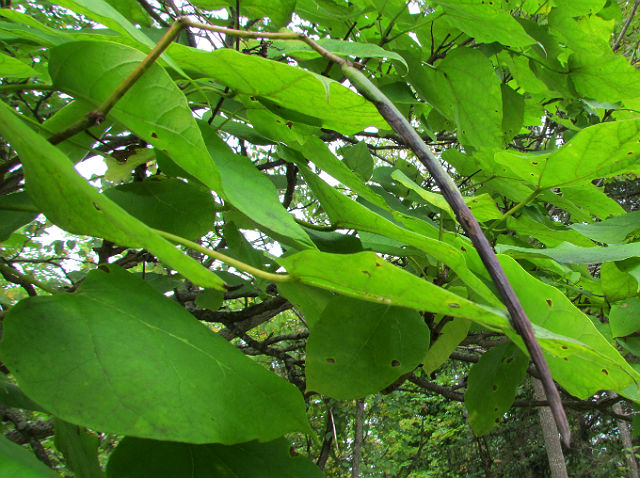Northern Catalpa, native to a relatively small area of the central Mississippi Valley basin, has been extensively cultivated in Ohio for over 200 years. It is now naturalized in urban and rural areas and these days is primarily used as a large, ornamental shade tree.
Farmers introduced Northern Catalpa to Ohio in order to produce large amounts of relatively lightweight timber for fenceposts, since its wood is very resistant to rotting. Its rapid growth rate assisted in this need, until metal fenceposts were developed and largely replaced wooden posts.
The medium-green leaves of Northern Catalpa are large and heart-shaped. They are some of the biggest leaves on any Ohio tree.
In Spring large, white flowers form in upright clusters from the branch tips, creating a striking floral effect. The flowers are composed of fused white petals with small amounts of yellow, orange and purple.
Pollinated flowers produce long, vanilla bean-like pods in early Autumn. The seedpods are slender and green in the Summer and grow to 10-24 inches, looking similar to an exaggerated green bean.
The seedpods mature in the Fall, turn dark brown and split open lengthwise to release the seeds inside.
The size, shape and color of the mature seedpods gives rise to another common name for this plant – the “Cigar Tree.”


